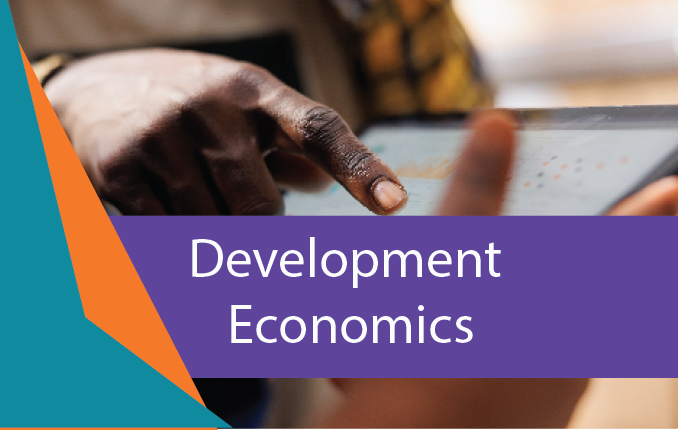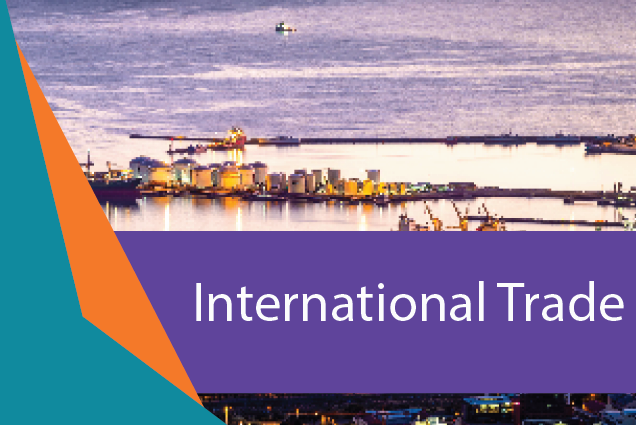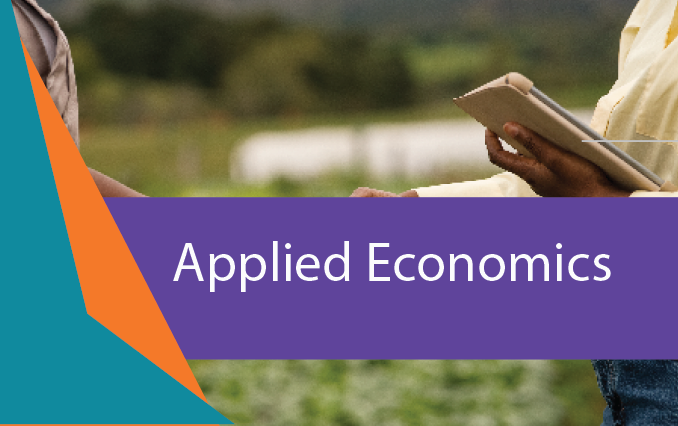 |
|
This multidisciplinary research area focuses on the structural and human dimensions of economic development, with strong emphasis on both macroeconomic and microeconomic perspectives.
Key themes include:
- Development and macroeconomics
- Labour economics, including employment, wage dynamics, and underemployment
- Gender and feminist economics
- Financial development and its links to economic growth
- Human capital, education, time use, and subjective well-being
- Economic geography, globalisation, and economic diversification
- Fiscal policy and industrial policy
- Food and housing insecurity, poverty, and financial inclusion
Recent research also highlights growing attention to Green and Ecological Economics, aligned with sustainable development goals and environmental justice.
|
| |
|
| |
|
|
 |
|
This research theme encompasses a wide spectrum of topics central to trade and economic development, including:
- Export promotion and import substitution
- Trade policy development and analysis
- Regional integration and export-led growth strategies
- Competitiveness and international market selection
- Trade facilitation and digital trade
- Global value chain (GVC) analysis
- Firm-level exports and performance
- International marketing and investment promotion
Research in this area supports informed policy decisions, enhances understanding of global market dynamics, and contributes to the development of sustainable and competitive trade practices at both national and regional levels.
|
| |
|
|
| |
|
| |
|
|
 |
|
The Applied Economics research area focuses on the practical application of economic theory and quantitative methods to address real-world challenges.
Key themes include:
- Policy-oriented economic modelling
- Labour market analysis
- Applied econometrics and statistical techniques
- Public finance and fiscal sustainability
- Agricultural, environmental, and resource economics
- Health and education economics
- Industrial organisation and firm-level performance
- Transport economics and infrastructure development
- Regional and urban economic dynamics
Research in this area plays a vital role in informing decision-makers across the public and private sectors. It supports evidence-based policy development, enhances competitiveness, and provides insights into how economic systems operate in practice—particularly within developing and emerging market contexts.
|
| |
| |
|
|
 |
|
This research area explores key aspects of financial markets, bank risk management, and investment management. Published work covers a wide range of themes, including:
- Financial market volatility
- Investment and portfolio management – with emphasis on valuation models, asset pricing, performance measures, risk tolerance, and risk profiling
- Derivative instruments, both financial and agricultural
- Bank risk management, specifically focusing on operational and reputational risk
The research contributes to a deeper understanding of market dynamics, investor behaviour, and the tools used to assess and manage financial and institutional risk.
|
| |
|
|
| |
| |
|
|
 |
|
This research area investigates the economic dimensions of transport systems, logistics networks, and supply chain management, with a focus on improving efficiency, sustainability, and policy relevance.
Key themes include:
- Transport logistics and infrastructure economics
- Supply chain optimisation and resilience
- Freight and passenger transport modelling
- Cost–benefit analysis and pricing strategies
- Trade facilitation and cross-border logistics
- Urban mobility and public transport economics
- Environmental impact of transport systems
- Digitalisation and innovation in supply chain networks
The research combines empirical analysis and applied modelling to inform infrastructure investment, regulatory frameworks, and private-sector decision-making. It supports the development of efficient, integrated, and inclusive transport and logistics systems that are essential for economic growth and regional development.
|
| |
| |
|
|
 |
|
TRADE researchers are actively involved in high-impact national and international initiatives:
- Dr David Spies has conducted ongoing research for the Organisation for Economic Co-operation and Development (OECD) in Paris since 2015. His work supports the estimation of the Producer Support Estimate (PSE) for South Africa, which features in the OECD's annual monitoring and evaluation reports.
- Dr David Spies and Dr Ernst Idsardi collaborated on a project for the South African Red Meat Producer Organisation, analysing the country’s import tariffs on red meat products.
- Dr Ernst Idsardi is a key member of a multi-university consortium led by the University of Helsinki that was awarded an EU-funded project titled Making Agricultural Trade Sustainable (MATS).
- Dr Idsardi also leads a case study titled “Ethical Trade Initiatives in the South African Wine Industry”, in partnership with Stellenbosch University.
|







